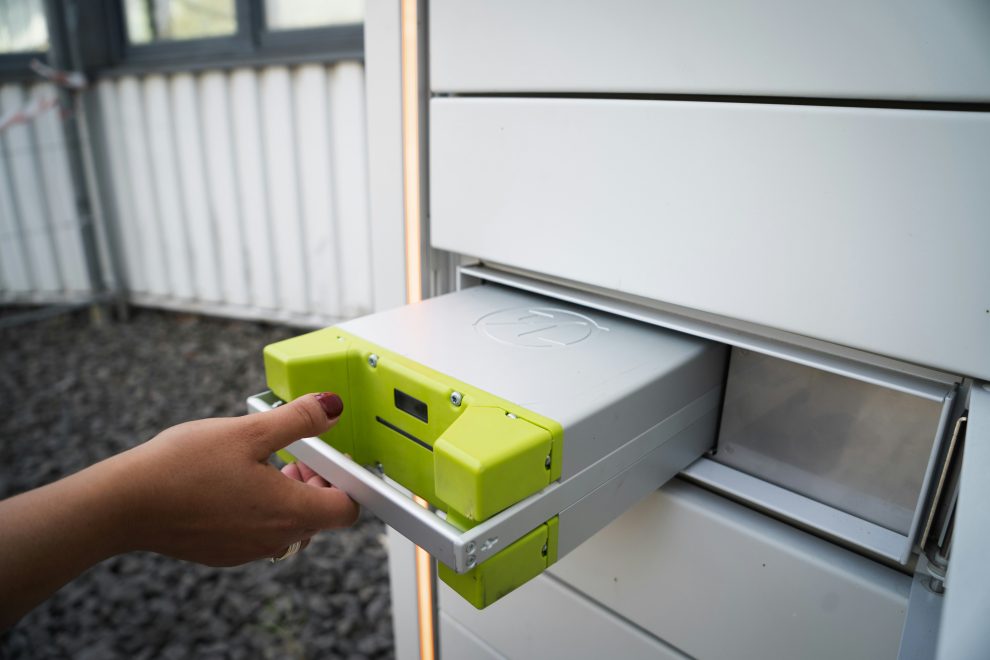A recent gathering of fire protection professionals, including firefighters, contractors, engineers and product vendors, took place at the Nassau County Police Academy in Garden City, Long Island, New York. Organized by the National Fire Sprinkler Association (NFSA), the event focused on the growing threat posed by lithium-ion battery fires. The keynote speaker, Lt. John Cassidy of the New York City Fire Department (FDNY), delivered an eye-opening lecture that underscored the urgent need for increased awareness and better safety measures.
Lithium-ion batteries, now ubiquitous in daily life, are found in a wide range of devices and systems. While these batteries are an efficient power source, their potential to overheat, catch fire or even explode is significantly heightened when they are damaged or mishandled during charging or storage.
Lt. Cassidy highlighted the alarming rise in lithium-ion battery fires in New York City. The batteries, which power everything from e-bikes to handheld vacuums and electric vehicles, were responsible for 362 fires in 2023 alone, tragically resulting in 18
fatalities. It is fully anticipated those numbers have already increased in 2024. Cassidy warned that these fires can ignite without warning and spread rapidly, often leaving little time for escape.
As the president of a leading fire safety firm, as well as vice president of the New York Fire Sprinkler Contractor’s Association (NYFSCA), one of the event’s sponsors, the information for me was both startling and cautionary.
Lithium-ion batteries store a significant amount of energy in a compact space. When this energy is released uncontrollably, it generates intense heat, which can turn internal components into flammable, toxic gases. Lithium-ion battery fires happen for a variety of reasons, such as physical and electrical damage, exposure to extreme temperatures and product defects. According to the FDNY, city records indicate that more than half of lithium-ion battery failures occurred when the batteries were not even charging.
Many of the more recent problems are the product of unregulated aftermarket chargers, which are not required to be certified. It is not uncommon for older batteries — even when left unplugged — to overcharge, causing batteries to malfunction, overheat and combust.
Delving into the science behind these perilous fires, the focus now is on the phenomenon of thermal runaway, a process in which the heat generated within a battery cell surpasses the amount of heat that can be dissipated. The resulting fires are notoriously
difficult to extinguish and produce highly toxic smoke, making them particularly dangerous. Alarmingly, even after a lithium-ion fire is seemingly extinguished, the batteries can still reignite.
The lieutenant’s message included recommendations for bolstering lithium-ion battery safety. He called for stricter battery certification regulations, enhanced public education on safe battery practices and further research into fire protection methods to prevent thermal propagation, i.e., the chain reaction where a thermal runaway event in one battery cell triggers neighboring cells, potentially causing the entire battery to catch fire.
With the exponential increase in use, it is critically important for all of us to be aware of their presence in our everyday lives and take practical safety measures. For example, when riding on the subway in a car with an e-bike, the best choice is to move
to the next car. If witnessing multiple delivery bikes with lithium-ion batteries stored haphazardly inside a restaurant or food delivery kitchen, immediately call the building’s landlord or report it to the FDNY.
Fortunately, New York State has extremely knowledgeable and effective fire prevention departments. It is equally essential for insurance companies to play a critical role. By adjusting insurance premiums for building owners and tenants, insurance companies can incentivize adherence to proper safety measures in properties housing lithium-ion products.
As Lt. Cassidy pointed out, “Every little bit counts, but don’t let perfect be the enemy of good.”
In other words, taking practical steps, even if they may not be flawless, is crucial in reducing the risks associated with lithium-ion batteries.
Adam Levine, P.E.
President
Capitol Fire Sprinkler Co. Inc.
51-51 59th Place
Woodside, NY 11377
(718)533-6800




















